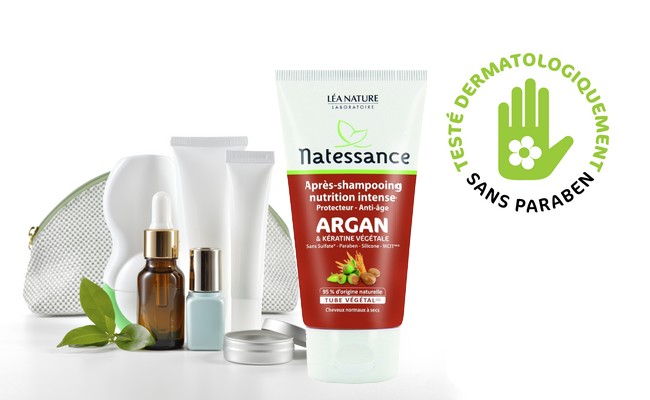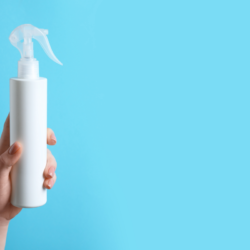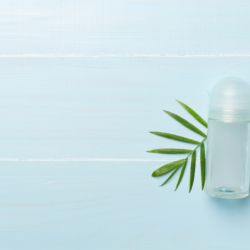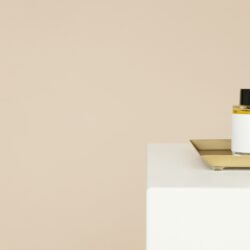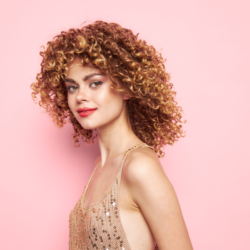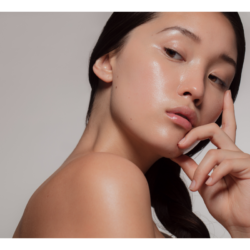It’s not unusual to see the words “paraben-free” appearing on certain products… But what are parabens? Are they really dangerous or banned? Are paraben-free cosmetics better than those that contain them? Or are they more dangerous to our health? In this article, we attempt to clarify this concept for consumers.
Parabens: preservatives used in cosmetics and medicines
Parabens are chemical substances that are generally used as preservatives because of their antibacterial and antimycotic properties. They are present in medicines, cosmetics and food products, as parabens protect against bacterial and fungal (mushroom) contamination. Parabens are also found naturally in the human body, as well as in certain fruits and vegetables, such as blackberries, strawberries and carrots, and other products such as honey.
According to the Agence Française de Sécurité Sanitaire des Produits de Santé (AFSSAPS), the use of parabens in medicines is justified, as they protect medicines from deterioration, which would result in a loss of efficacy. AFSSAPS adds that only the risk of allergy to parabens in pharmaceutical products has been proven. Their use in medicines is therefore not called into question.
However, there are other safety risks associated with the use of these preservatives. They are thought to have carcinogenic potential. In 2004, British researchers discovered the presence of parabens in the biopsy of a breast cancer tumour. Since then, other animal studies have accused parabens of causing fertility problems in humans. For some years now, scientific studies have been pointing the finger at this substance suspected of being an endocrine disrupter. Public health institutions have not confirmed the health risks of parabens, but as a precautionary measure, parabens in shampoos are now regulated and quantified.
Choosing paraben-free organic cosmetics limits the risk to your health
“Parabens” is the common name for a class of chemicals known by other names, such as p-hydroxybenzoic acid esters. Preservatives are important because they combat yeast, mould and bacteria.
The 2004 study by British scientists suggests that there may be a link between parabens in deodorants and breast cancer (the results are based essentially on the presence of parabens in cancerous breast tissue). Even if the results of these studies do not prove the carcinogenic effect of parabens, what is certain is that parabens are allergenic, irritating to the skin and eyes, and appear to have oestrogenic activity, hence a possible link with cancer.
There are several types of parabens, often used in mixtures in cosmetics. However, they do not all have the same toxic potential. While methylparaben and ethylparaben appear to be harmless, harmful effects have been observed with propylparaben. The others (butylparaben and isobutylparaben in particular) have shown oestrogenic or reprotoxic effects in several studies.
Products with or without parabens – the choice is yours! But in view of the studies carried out, it’s still better for your health to choose paraben-free organic cosmetics. For more information, ask your pharmacist for advice.
How do I choose paraben-free organic beauty products?
When looking for paraben-free organic beauty products, it’s important to do your research to find trusted brands that use natural ingredients and avoid harmful chemicals. Look for organic certifications and avoid products that contain synthetic ingredients, such as artificial fragrances and colours.
The harmful effects of parabens
The positive effects of paraben-free organic cosmetics on your skin
Organic cosmetics cosmetics can offer many benefits for your skin. The natural ingredients used in these products can help moisturise and nourish the skin, while reducing inflammation and improving skin quality.
They can also help prevent skin irritation and allergies, as they do not contain harsh chemicals that can cause negative reactions on the skin, as well as helping to slow down the skin’s ageing process. The natural antioxidants present in these products can help protect the skin against free radicals and prevent damage caused by the sun, pollution and stress.
Benefits for the environment
Paraben-free organic beauty products are also more environmentally friendly. They are made from renewable sources, which means they don’t contribute to the depletion of natural resources. What’s more, these products contain no harmful chemicals that could harm wildlife.
Parabens, frequently used in cosmetic products, make them ubiquitous in the environment. Wastewater treatment plants (WWTPs) are the main sources of contamination by these micropollutants, which are detected in continental waters, sediments, soils and living organisms.
In addition to direct industrial discharges, parabens are also present in cigarettes, varnishes, glues, hygiene products and animal feed, contributing to the pollution of continental waters. Parabens are not very volatile and are stable in acidic environments, with hydrolysis mainly taking place in alkaline environments. Their photodegradation varies according to type, with BzP being the most photodegradable. Under aerobic conditions, some parabens and their metabolites are biodegradable, although this degradation is partial under anaerobic conditions.
Parabens are absorbed from the gastrointestinal tract and metabolised mainly in the liver and kidneys, producing HBPA, which is then excreted in the urine. However, some parabens can persist in the body following continuous exposure. Studies have also shown their presence in breast milk.
Microbial degradation of parabens by certain bacteria produces metabolites used as a source of carbon. In aquatic environments, parabens adsorb to suspended solids, their accumulation depending on hydrophobicity and organic content. Their bioconcentration in the tissues of aquatic organisms varies according to the length of the alkyl chain. Eco-toxicological studies show that the toxicity of parabens varies from species to species, generally increasing with the length of the alkyl chain.
Conclusion
By choosing paraben-free organic beauty products, you can not only protect your health and well-being, but also help to protect the environment. The natural ingredients in these products can offer many benefits for your skin, while avoiding the potential health risks associated with parabens. Do your research to find trusted brands and enjoy the many benefits that paraben-free organic beauty products can offer.
FAQ
Q: Are paraben-free organic cosmetics more expensive than conventional products? A: In general, they can be a little more expensive than conventional products. However, the health and environmental benefits are often worth the price difference.
Q: Are paraben-free organic cosmetics suitable for all skin types? R: Yes, they are suitable for all skin types. The natural ingredients used in these products are gentle on the skin and can help reduce skin irritations and allergies.
Q: Do paraben-free organic beauty products have a shorter shelf life? A: They may have a shorter shelf life than conventional products due to the absence of synthetic preservatives. However, they are often produced in small quantities to guarantee the freshness and quality of the ingredients.
Q: Are paraben-free organic beauty products tested on animals? A: No, they are generally made without cruelty to animals. Look for brands that use vegan ingredients and are certified cruelty-free.
References :
- https://www.fda.gov/cosmetics/cosmetic-ingredients/parabens-cosmetics

